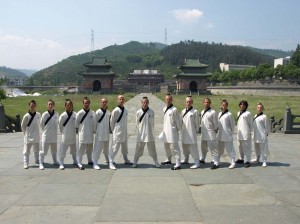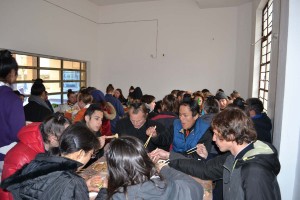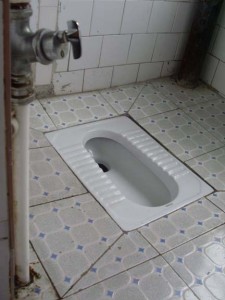I want give a BIG THANK YOU to all of the families who contributed to my run in the Tough Mudder this past Saturday — Over $500 all together! Not only did you show your support to me, but you donated to a fantastic cause called the Wounded Warrior Project. This project ‘s mission is to reintegrate injured soldiers into society through therapy, treatment plans, and the provision of medical equipment. A person’s service to our country is a huge sacrifice – those deployed give up their family, a lot of their freedoms, and sometimes their lives – to ensure that we have ours. Thanks to all of our service members (police, firefighters, military members, and more) for all that you do!
So let me tell you: 11 miles through the mud, obstacles, and a severe thunderstorm was… Tough! Crossing the finish line was only possible with the use of Teamwork, Courage, and Discipline — All characteristics that have been discussed at BLS as Word of the Month.
Teamwork is integral to the very foundation of the Tough Mudder course. “Teamwork and camaraderie before my course time” and “I help my fellow mudders complete the course” are some of the phrases pledged before and throughout the course of the race. The Mud Mile was an obstacle of a dozen steep slopes of muddy clay separated by deep trenches of muddy, clay water. It takes teamwork between all participants to push and pull one another over the slippery slopes to continue trudging through the mud. At the end of the 10th mile when you think all of your energy is spent, the Everest obstacle requires you to sprint with no hesitation up a quarter pipe ramp then leap upwards with all of your strength, and at the last second grasp hands with another mudder who pulls until you’re able to clamber over the edge. It really takes everyone working together to cross that finish line.
During the competition, I witnessed amazing displays of courage by some of the participants. It is a common understanding that the Tough Mudder is “not a race, but a challenge” and mudders commit to “overcome all fears.” Samantha, a teammate of mine, took a leap of faith plunging 20 feet down into cold and muddy water below. Although she has faced bigger challenges before, it always takes a renewed sense of determination to overcome a fear. Seeing so many injured soldiers participate was truly inspirational! The most courageous act I saw was from a fellow competitor making his way through the course on two prosthetic legs that he acquired after a deployment over seas. I struggled to keep my legs moving — I cannot fathom the internal strength and determination it took for that man to overcome those challenges.
All 24,000 Mid-Atlantic runners (a record registration number!) showed a great amount of discipline. It takes a lot of mental grit to complete that race. The promise of Tough Mudder sponsor merchandise and hot food at the finish line does not motive a person enough to push through 11 miles of rain and mud going over, under, and through a series of 16 obstacles (5 got closed down). As so eloquently relayed on signs posted along the path, Mudders “do not whine…” It takes a great deal of mental and physical discipline for each person to push themselves to the finish line – I watched my dad limp through over 8 miles on a bad knee without a word of complaint and smile on his face at each obstacle to overcome. That type of discipline is a commitment to yourself, which gives you the strength to is push a bit further. Internal discipline is putting mind of over matter, so you get done whatever it is you need to do.
Anyone who is interested in testing out their teamwork, courage, and discipline should consider registering for the Tough Mudder on April 20 & 21, 2013! Our military men and women serve, protect, and sacrifice for us; what are you willing to do to give back?




